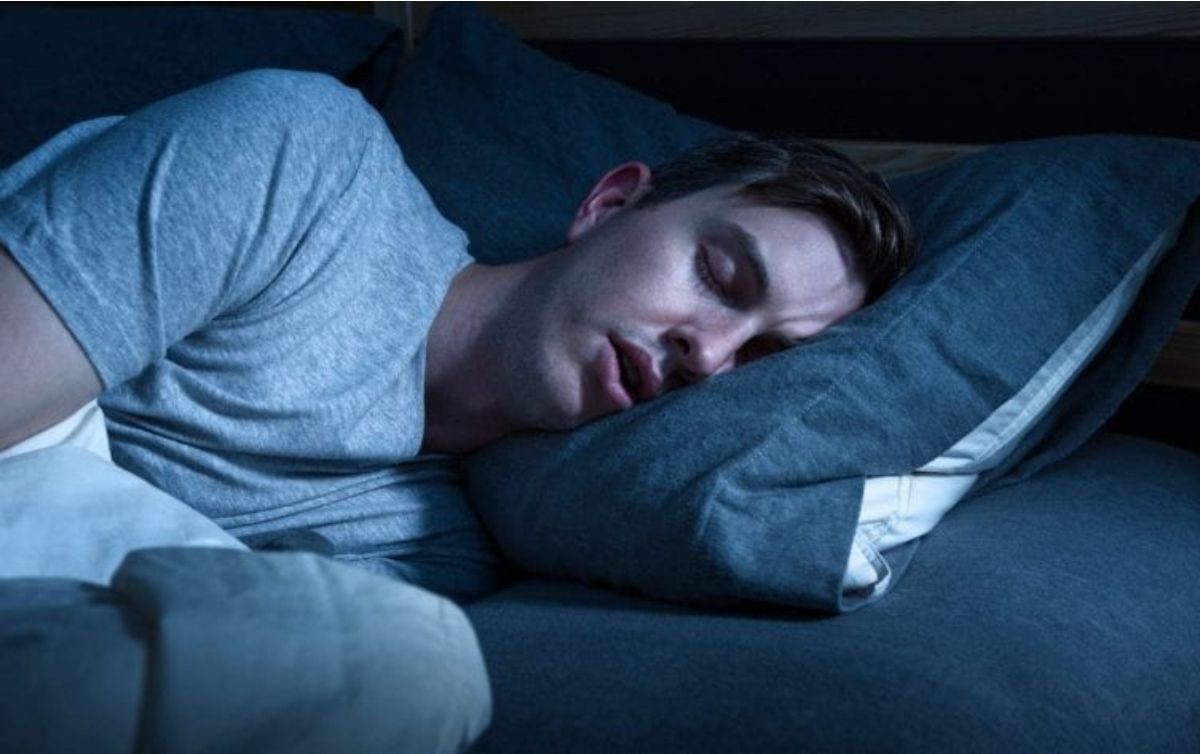LIVING WITH THE PANDEMIC IF YOU ALREADY HAVE MENTAL HEALTH PROBLEMS

The COVID-19 epidemic may be especially challenging for those of us with mental health problems – wherever we are on that journey.
If we are currently struggling, we may find it harder to get support, and if we manage well most of the time, it might be harder to follow our usual ways of coping. The pandemic - and the things we’ve all been asked to do in response - may also shake the foundations of stability or recovery for those of us who are currently well or have been for some time. It’s important, at a time like this, to be aware of our mental health and how we are doing on a daily and weekly basis. Early recognition can make getting back on track easier. Many of us are coping well and using skills we’ve learned through experience and support to manage through this crisis. It’s important that we don’t assume that everyone with mental health issues is vulnerable or unable to cope, which can be damaging and lean into stigma. If you are finding it hard to cope right now please visit this page to find a list of helplines and resources. Why might COVID-19 be a big issue for those of us with a lived experience of mental health problems? Those of us with lived experience of mental health problems are, sadly, more likely to experience inequality and health challenges. We are more likely to be isolated, we are at greater risk of having other health conditions which make us more susceptible to COVID-19 and we often find it hard to ask for and get support, even at the best of times. So, what are some of the major concerns? Many of us have worked hard to find ways to live with distress or symptoms in a way that allows us to function at home and at work or study. The pandemic and social isolation may undermine these or make us vulnerable to crisis until we find new ways of coping. Sometimes, the restrictions on our lives and media reporting of the pandemic can clash with experiences we have had with mental health. If we have challenges around food and eating, a change in the type or pattern of eating and shopping can jeopardise our recovery or upset techniques we have learned to keep well. The public health messages and media commentary on the pandemic can be triggering for people who experience obsessions or intrusive thoughts relating to contamination or spreading disease. Simple, repeated slogans are needed to persuade people to follow lockdown rules but phrases like ‘stay at home, protect the NHS and save lives’ can have a huge impact on people if our distress has always made us believe that we should take action to protect others from contagions we believe we might spread. If we have been detained in hospital or have isolated ourselves in our homes in the past, the need to stay home now can remind us of those times. The focus of the media on people supposedly breaking government guidance, and the actions of the police enforcing it, might make some us feel more watched or exposed. This may be exacerbated if we’ve had previous contact with the police or the Criminal Justice System, or if we’ve had similar experiences whilst detained in hospital. Hearing Voices Network developed an excellent resource on surviving the epidemic if you have visions or hear voices. If we have experienced trauma, then our flashbacks may be stronger and more frequent, and some of the coping strategies we might use to cope with them may no longer be available. Similarly, if we struggle with self-harm or substance misuse, it can be hard to resist urges. We may feel that A&E is no longer an option for emergency treatment – though it is. We may be worried about the risks of abrupt withdrawal from drugs or alcohol. We may not be able to access our usual support network, see friends, or go to our peer support/self-help group. It may be that home is not a safe place. Services are under pressure and the professional relationships that are often key to our lives are changing at the moment. Our support may have changed, and we may be unable to see familiar support staff. We may also be worried about accessing medication. A lot of services and support have moved online or over the phone and we may not be comfortable with this kind of support. Some people find video calls disorientating, or do not like speaking on or answering the phone. Others may not be confident around the technology. It’s important to acknowledge that while online, phone or text support can be great for some people, it doesn’t work for everyone. There are some people who prefer face-to-face and they might struggle more at the moment because this is far less available. We may feel that our concerns, or any deterioration in our mental health, make us an additional burden on our loved ones, our support system, and the NHS. There have been confusing messages in the media about this, and who ‘deserves’ care, and we might understandably be worried that A&E and emergency services may not be available if things reach crisis point. Whatever we feel, it is understandable, expected even, that this challenging period for the world will take a toll on us. It’s also a confusing time, because some of us might be coping better than anticipated. We may feel comfortable in ‘crisis mode’ or be used to being isolated or getting limited support, so this doesn’t feel too different, yet. What steps could we try to take to look after our mental health at the moment? There are lots of mental health tips being shared at the moment, many of which are useful for those of us with mental health problems. That said, some suggestions can also seem overwhelming or out of reach - financially or socially. Things like taking on new hobbies, cooking new things or paying for expensive deliveries or subscriptions. A lot of this advice might seem more aimed at people who don’t normally struggle with their mental health, so might seem simple, or just not intended for us. The ideas below are intended to give a start. Whatever we can manage, and that feels OK, is good enough.1. Try to do the basics when you can Eating, sleeping, moving (either inside or outside) and making sure we keep hydrated are the building blocks of life, and are important to our mental health – but they can seem overwhelming at a time like this. If you can keep your routine, or establish a new one, it may be easier to keep well. This is not easy to do. Writing a routine down at first may help. 2. Try to accept that you are worthy of support It’s hard to ask for help and it can be hard to believe that you are worthy of people’s time. It’s can also be hard to believe that you have things to offer. You are worthy of support. Try to be kind to yourself. Self-compassion is always important – though it may be hard. Health services such as your GP and pharmacy are still operating. Even under pressure, they are still there to help, whether it’s with your mental or physical health. Don’t suffer in silence or ignore early warning signs that might prevent a crisis. 3. Try to make a plan with your support team and professionals If you have support from mental health services or other organisations, ask them how things are changing during the epidemic. Mental health staff face the same pressures as other NHS teams, with staff absence and a need to work out new ways to work. Even so, they are still there. Try to ask for what you need, if you can. If you don’t feel able to explain difficulties, see if a friend or family member can help explain, or try writing it down. If things do need to change and that is difficult for you, give the new way a chance – it might be OK. Speak to your pharmacist or GP about prescriptions and blood tests. If you have to speak with other agencies, like the DWP (Department for Work and Pensions) or your landlord or banks, remember you can get advice about your rights from a range of sources. 4. Try to build a circle of support A circle of support is a group of people and tools that you gather around you for when times are hard. This may be practical or emotional support (like someone to look after you or your pet if you are unwell, someone who could do your shopping if you feel unable to, or a friend to send you a text each morning to check you are up). A circle of support can be in person or via digital means. 5. Try to build and maintain connections, even when it seems hard Most of us need a balance of being on our own and being with others. Being forced to be on our own can be damaging, and connection with other people is so important to our mental health. Being able to connect with people online or on the phone can be really helpful- but also overwhelming or confusing. It can take time to figure out how different apps or online tools work and which ones are right for you (if any). Perhaps you’ve always known the value of online communities and are able to rely on peer support from online friends. If you have skills you could share, then consider doing that if you can. 6. Try to lean on your experiences of coping in the past If you’ve experienced mental health issues, there’s a chance you’ve gone through periods where you’ve been isolated, withdrawn, or challenged. You might have surprised yourself in the past with what you’ve been able to cope with, even when it seemed too awful to contemplate. It’s time to remember those times and use that learning. You may have a plan, or even a box of things you know help when things are hard. If you don’t and are feeling well at the moment this might be a good time to gather some things together. You could include relaxation tracks or breathing exercises, diversions like colouring, music or video games, or doing something creative. You could even build a den or safe space in the house. There are now a lot of free events – theatre, virtual tours of museums and similar – so you may find something that interests you. Try to do something nice for yourself every day and celebrate small wins – even if it’s as simple as washing your hair or going outside for a walk. 7. Try to express yourself – to others and in private It can be hard to express the things we feel when times are hard. Getting it out can be helpful – whether we share or not. You could keep a private journal or blog, carry a notebook, or use social media or creative arts. It’s great if you have people you can confide in but even if you don’t, writing things down to revisit yourself can really help. Some people find keeping a note of things they are grateful for, or things they’ve learned, however small, helpful. If you use social media or blogs, make sure you remember to check your privacy settings and think through how comfortable you are sharing before you post. 8. Try to limit your exposure to the news The news is all about coronavirus and this may add to our worries or rumination, where we chew over every thought in our heads. If this is an issue for you, then try and listen or read one news bulletin a day, then switch off and do other things – though this is hard for all of us at the moment. 9. Try to be in the moment Many of us have things in our past which affect the way we live our lives now. Many of us also worry about how things in the future will pan out. Both are important – in terms of understanding our lives and planning – but while coronavirus restrictions are in place, it may be helpful to try and live in the present. Take it one day at a time if you can. That means respecting the past and what it means, but passing each minute, hour and day as a new opportunity, and another step towards the restrictions ending. If we can work to forgive ourselves and take care of ourselves – it will help. The only way is through. 10. Try to be a part of your community and help, if you are able If you are feeling well, there may be things you can do in the community to help out - especially if you are at home. Walking neighbourhood dogs, helping to deliver food or volunteering for local community initiatives can be a great way to give back. If you have IT, digital or creative skills, these are often needed by community groups and don’t require you to be out and about. Our resource Doing Good Does You Good explains how volunteering can be good for our mental health. This piece was authored by Mental Health Foundation staff with lived experience of distress and improved by the input of peers across the organisation. We are particularly grateful for the advice of external reviewers – in particular the valuable suggestions made by Akiko Hart, Chief Executive of NSUN. NSUN are hosting a range of blogs and resources about living with distress during the pandemic.
https://www.mentalhealth.org.uk/coronavirus/living-pandemic-if-you-already-have-mental-health-problems




